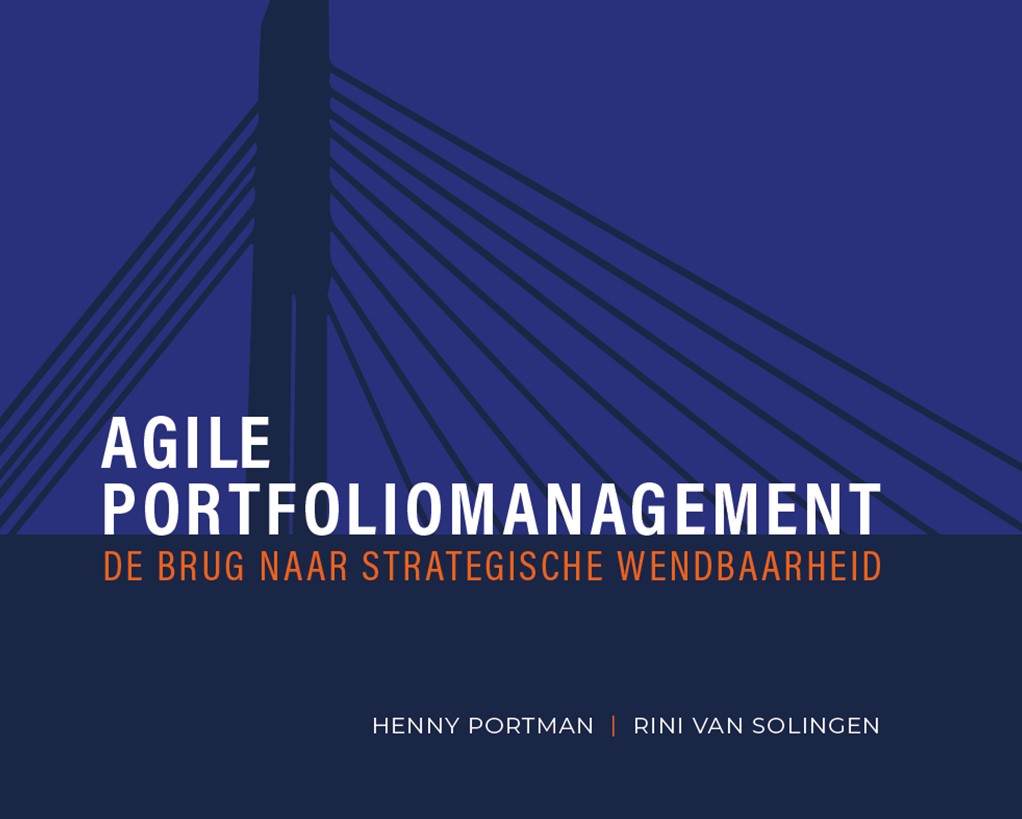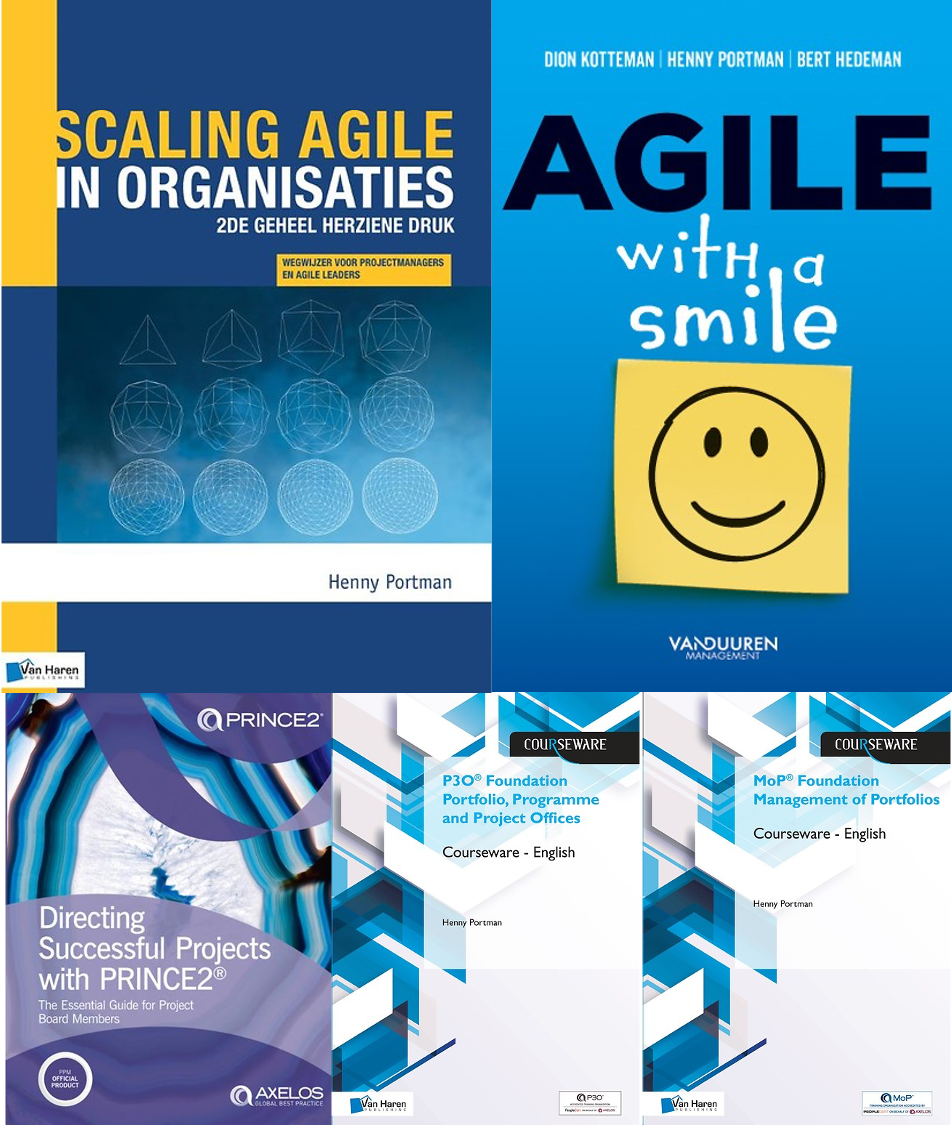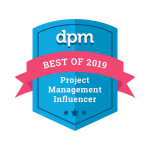
After nine years there is a new edition of the Managing Successful Programmes (MSP) guide. It’s a best practice so I assume the changes will be incremental and not a revolution.
Good to see that the guide is 80 pages less (now 224 pages) and I really like the four scenario’s which are used to show what specific topics mean for the different scenarios. The four used scenarios are the national rail network programme, the bank compliance and adaptability programme, the charity organizational realignment programme, and the utilities maintenance and improvement programme.
The first thing you see when opening the guide is a summary or quick reference card of MSP. Looks like they embraced my idea to add a quick reference card as I did when writing the official Directing Successful Projects with PRINCE2 guide.
To get a first understanding of the differences, I will look at principles, themes, processes, organization and products. It is just a first impression; I will not go into the details where you will probably find many more differences.
Programmes aligned with MSP are directed by principles which are universal, self-validating and empowering.
| Principles | |
| MSP 5th edition | MSP 2011 edition |
| Lead with purpose | Leading change Envisioning and communicating a better future |
| Collaborate across boundaries | – |
| Deal with ambiguity | – |
| Align with priorities | Remaining aligned with corporate strategy |
| Deploy diverse skills | – |
| Realize measurable benefits | Designing and delivering a coherent capability Focusing on the benefits and threats to them |
| Bring pace and value | Adding value (Learning from experience) |
Still seven principles but slightly different. Some are more or less combined and two new principles: collaborate across boundaries (to facilitate effective cross-organizational governance where it does not already exist) and deal with ambiguity (to embrace the volatile, uncertain, complex, and ambiguous nature of programmes and focuses attention on the need to make ‘eyes-open’ choices). Learning from experience is now incorporated in the new knowledge theme.
Themes are essential aspects of governance required to ensure that the programme is aligned with the principles. Themes are collectively applied during the processes throughout the programme lifecycle.
| Themes | |
| MSP 5th edition | MSP 2011 edition |
| Organization | Programme organization Leadership and stakeholder engagement |
| Design | Vision Benefits management Blueprint design and delivery |
| justification | The business case |
| Structure | Planning and control Benefits management |
| Knowledge | Quality and assurance management – |
| Assurance | Quality and assurance management |
| Decisions | – Risk and issue management |
The MSP 5th edition uses 7 themes and the old MSP 2011 edition uses 9 themes. As we can see, several old themes are combined, and some are divided across the new themes. Two themes are more or less new. The purpose of the knowledge theme is to acquire, curate, and use knowledge, to use knowledge and experience to learn lessons, and to build a culture and practice of continual improvement and to manage information to ensure its integrity, controlled access to the right versions, and data privacy (this last part was covered in the information management part of the quality and assurance theme).
The decisions as a separate theme is new. Of course, the old guide spoke about decisions too but now it get much more emphasis. The purpose of this theme is how programmes make decisions at various points across the programme lifecycle, whether those decisions be related to resolving issues, responding to risks, or any other choice requiring a considered and governed approach and it’s the prerequisites for effective decision-making within programmes. The CHAOS Report’ 2018 from the Standish Group sees decision latency as one of the key factors why so many projects fail. In other words, if you want to improve project success, you have to speed up your decision-making. So it makes sense to have a dedicated theme for decision making.
The lifecycle (in the previous edition this was called the transformational flow) of any programme is incremental. Programmes are designed to deliver benefits of value to stakeholders throughout the programme lifecycle. As new information becomes available, adjustments are made. Programme management requires a focus on learning, design, and redesign of the progression towards the desired future state.
| Processes | |
| MSP 5th edition | MSP 2011 edition |
| Identify the programme | Identifying a Programme |
| Design the outcomes | Defining a Programme Managing the Tranche |
| Plan progressive delivery | Managing the Tranche |
| Deliver the capabilities | Delivering the capabilities |
| Embed the outcomes | Realizing the benefits |
| Evaluate new information | Managing the Tranche |
| Close the programme | Closing a Programme |
MSP 5th edition contains one additional process. The old process Managing the Trance is now divided across the processes design the outcomes, plan progressive delivery and evaluate new information.
No major changes to the structure and roles.
| Organization | |
| MSP 5th edition | MSP 2011 edition |
| Sponsoring group | Sponsoring group |
| Programme board | Programme board |
| Programme office | Programme office |
| Senior responsible owner (SRO) | Senior responsible owner (SRO) |
| Programme Manager | Programme Manager |
| Business Change Manager (BCM) (only one in the programme board) | Business Change Manager(s) (BCM’s) |
The last part of the comparison are the products. There is no division in boundary, governance or management information baselines.
| Products | |
| MSP 5th edition | MSP 2011 edition |
| Benefits profile | Benefits profile |
| Benefits map | Benefits map |
| Business case | Business case |
| Decision register | – |
| Issue register | Issue register |
| Programme brief | Programme brief |
| – | Programme definition document |
| Programme mandate | Programme mandate |
| Programme plans: | – |
| – Delivery plan | Programme plan Projects dossier Resource management plan Information management plan |
| – Benefits realization plan | Benefits realization plan |
| – Stakeholder engagement and communications plan | Programme communications plan |
| – Assurance plan | Quality and assurance plan |
| – Financial plan | – |
| – | Programme preparation plan |
| Programme strategy: | – |
| – Governance approach | Organization structure |
| – Stakeholder engagement and communications approach | Stakeholder engagement strategy |
| – Design approach | Benefits management strategy |
| – Funding approach | – |
| – Delivery approach | Monitoring and control strategy |
| – Resourcing approach | Resource management strategy |
| – Knowledge and learning approach | – |
| – Information approach | Information management strategy |
| – Assurance approach | Quality and assurance strategy |
| – Decision-making approach | – |
| – Issue resolution approach | Issue management strategy |
| – Risk response approach | Risk management strategy |
| Risk register | Risk register |
| – | Stakeholder profiles |
| Target operating model: processes, culture, organization, technology, infrastructure, information and data, knowledge and learning | Blueprint: processes, organization, technology, information and data (POTI) |
| Vision statement | Vision statement |
In the MSP 5th edition we see the following new documents: decision register, decision-making approach, the knowledge and learning approach, financial plan and the funding approach. Some documents are omitted or aren’t formal documents anymore, e.g. programme definition document, programme preparation plan and stakeholder profiles. The old strategy documents are now integrated into the programme strategy document.
A pity the health checks are omitted in this new version.
Conclusion: We can conclude that the MSP 5th edition is not a revolution. The usage of the four scenario’s makes it much simpler to understand the different topics. The quick reference card at the beginning is definitely helpful. Changes in principles, themes and processes are in line with the current way of working and support a more agile mindset.
To order Managing Successful Programmes: managementboek.nl, bol.com, Amazon
















Thank you so much. Very interesting Best wishes Piotr
I found the brief comparison very helpful, thank you for the knowledge share.
Pingback: Overview of my year 2020 book reviews | Henny Portman's Blog
Thanks for the inspiring overview. – Helped me much to easily understand what`s different or new…
Unfortunately, still waiting for the delivery of the MSP 5th Ed. book ordered 😉
Appreciated your support
Best wishes
Thorsten